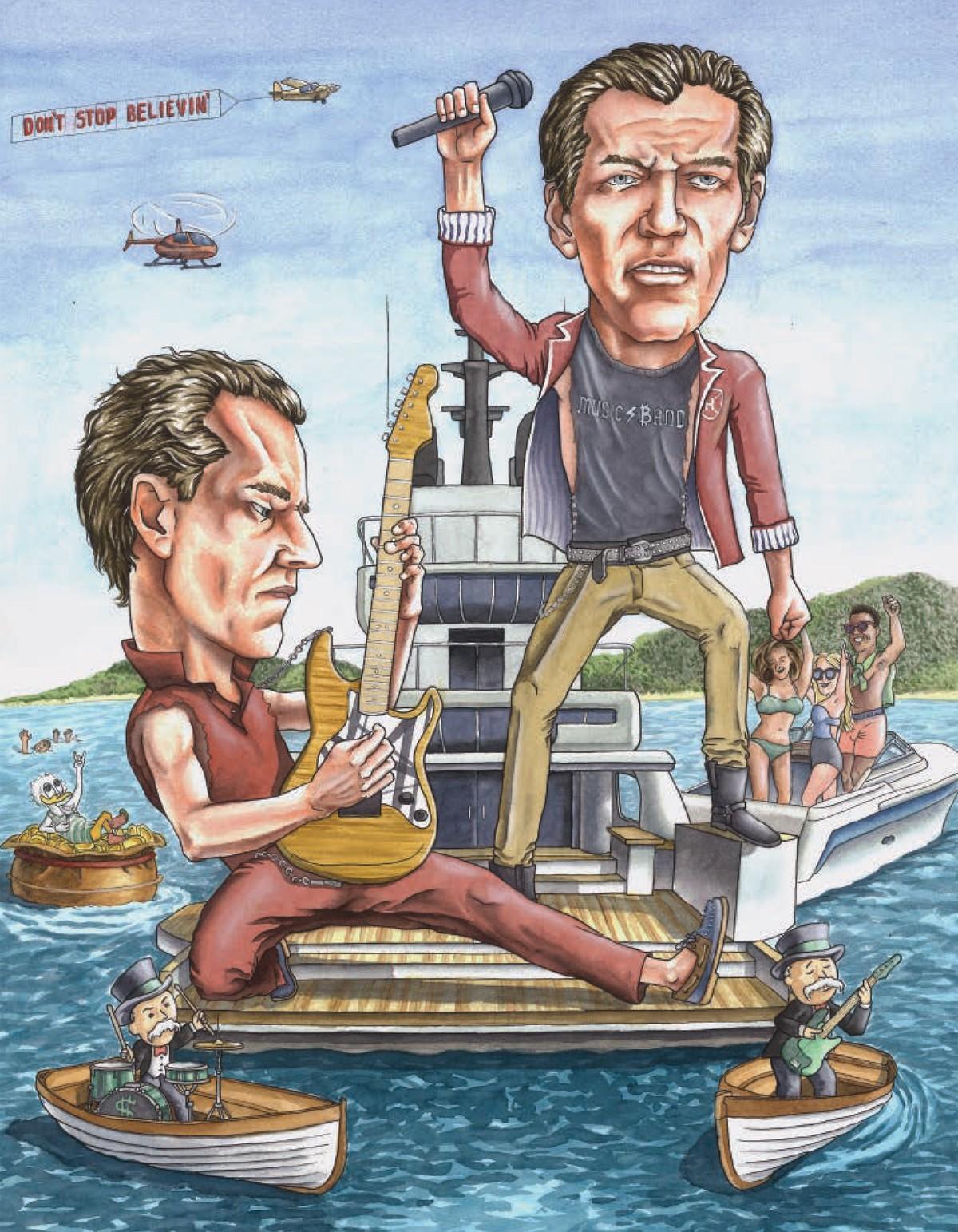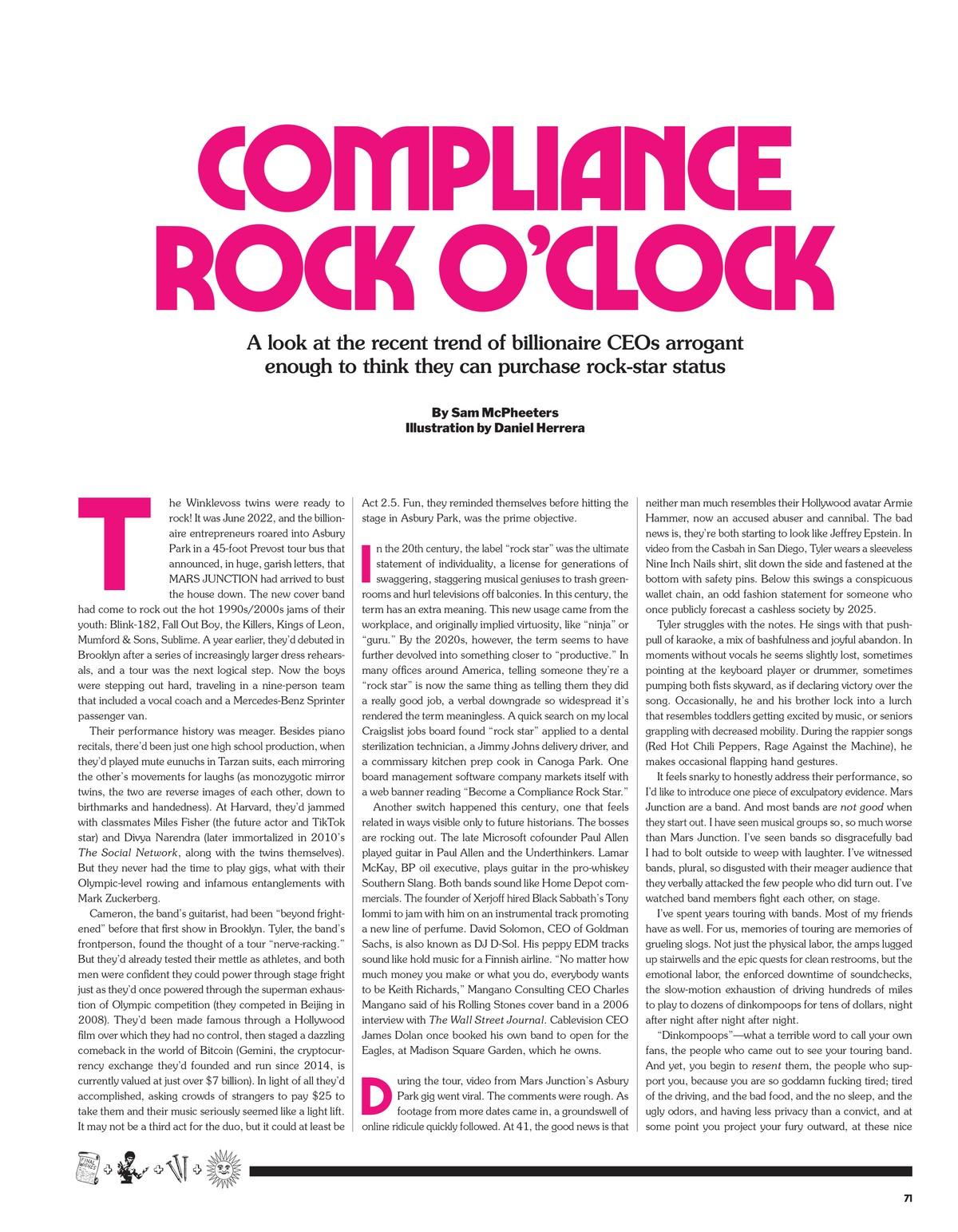Features
COMPLIANCE ROCK O’CLOCK
A look at the recent trend of billionaire CEOs arrogant enough to think they can purchase rock-star status.
December 1, 2022


Loading...

A look at the recent trend of billionaire CEOs arrogant enough to think they can purchase rock-star status.


Loading...